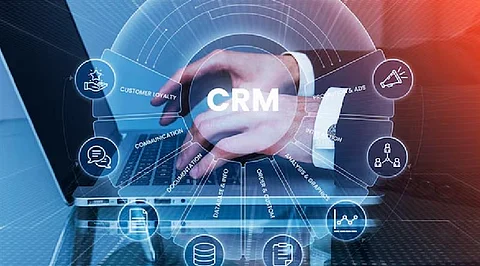

When it comes to distribution, efficiency is everything. Margins are often tight, competition is fierce, and customers expect accurate quotes, on-time shipments, and quick responses. Generic Customer Relationship Management (CRM) software might help you track contacts and sales, but if you’re a distributor, chances are it doesn’t speak your language. A CRM for distributors offers functionality that improves relationships, increases revenue, and even helps your team stay in the loop. Here, we break down five clear reasons why distributors benefit from using a CRM package designed just for them.
Most off-the-shelf CRM tools try to be everything to everyone, and in doing so, they often fall short for teams with complex workflows. For distributors, the real value comes from a more precise fit that is designed to match your specific processes, not someone else’s. A CRM that’s built with your business model in mind can adapt to how you quote, how you manage inventory, how you follow up with customers, and how your reps work in the field.
Your sales pipeline probably doesn’t look like a software company’s pipeline. Your inventory system doesn’t follow the same rules as a retailer’s. But an industry-specific CRM can bridge those gaps by pulling in the fields, dashboards, and automations that actually reflect how your operation runs day-to-day. This makes adoption easier and insights more relevant. When your CRM feels like it was made for you, your team is far more likely to use it well.
Let’s dive a little deeper into some of the day-to-day operations we just mentioned. What specific problems do distributors have that might be a little different from other industries? What about quote management, order histories, multi-warehouse logistics, and pricing tiers across customer segments? As you can see, the difference isn’t subtle.
A CRM made for your industry can help sales reps access past orders and inventory levels in real-time, even while they’re out on the road. It likely supports complex customer relationships, where one client might buy in bulk for multiple locations or need special terms based on volume. It also will most likely let your customer service and operations teams see the full picture without bouncing between systems. With a CRM tailored to distribution, the features support your business model right out of the gate.
One of the quiet struggles in distribution is demand forecasting. You’ve got to make smart decisions about inventory while juggling seasonal demand, customer preferences, and supplier delays. A CRM built for distributors connects sales activity with inventory data, helping you spot trends and plan more accurately.
Let’s say one of your reps notices that a particular product is getting a lot of quote requests in a certain region. With the right CRM, that kind of signal doesn’t sit in a notebook or disappear in an email thread. It’s captured, tracked, and made visible to the inventory planners, purchasing managers, or even marketing. That kind of insight lets you pivot quickly, stock the right items, and avoid disappointing a customer with an unexpected backorder.
Distributors often have sales reps who wear many hats. They’re following up on leads, managing customer relationships, tracking order statuses, and sometimes even stepping in to solve service issues. A CRM built specifically for distributors helps to simplify their jobs by giving them the tools they actually need, all in one place.
Instead of toggling between a spreadsheet, an inventory system, and their inbox, reps can use a CRM that shows them customer order histories, real-time inventory, quote approvals, and shipping updates in one dashboard. That means less busywork and more time focusing on sales conversations that move the needle.
Your customers don’t care what software you’re using. What they care about is how well you understand their needs and how quickly you respond when something goes wrong. A CRM tailored for distributors gives your team the ability to communicate clearly and proactively.
Let’s say a customer calls asking about an order placed two weeks ago. With a standard CRM, the rep might need to call up operations, check the warehouse, or dig through emails. But with a CRM built for distributors, that information is already there. This includes shipment status, expected delivery date, tracking info, and invoice history. That kind of fast, accurate response makes a lasting impression.
It’s also easier to personalize outreach. If a client usually orders every quarter but hasn’t reached out this cycle, your CRM can flag that and prompt a follow-up. If their buying patterns change, it can trigger alerts or adjust sales forecasts. That’s the kind of proactive service that turns a one-time buyer into a loyal account.
Join our WhatsApp Channel to get the latest news, exclusives and videos on WhatsApp
_____________
Disclaimer: Analytics Insight does not provide financial advice or guidance on cryptocurrencies and stocks. Also note that the cryptocurrencies mentioned/listed on the website could potentially be risky, i.e. designed to induce you to invest financial resources that may be lost forever and not be recoverable once investments are made. This article is provided for informational purposes and does not constitute investment advice. You are responsible for conducting your own research (DYOR) before making any investments. Read more about the financial risks involved here.
